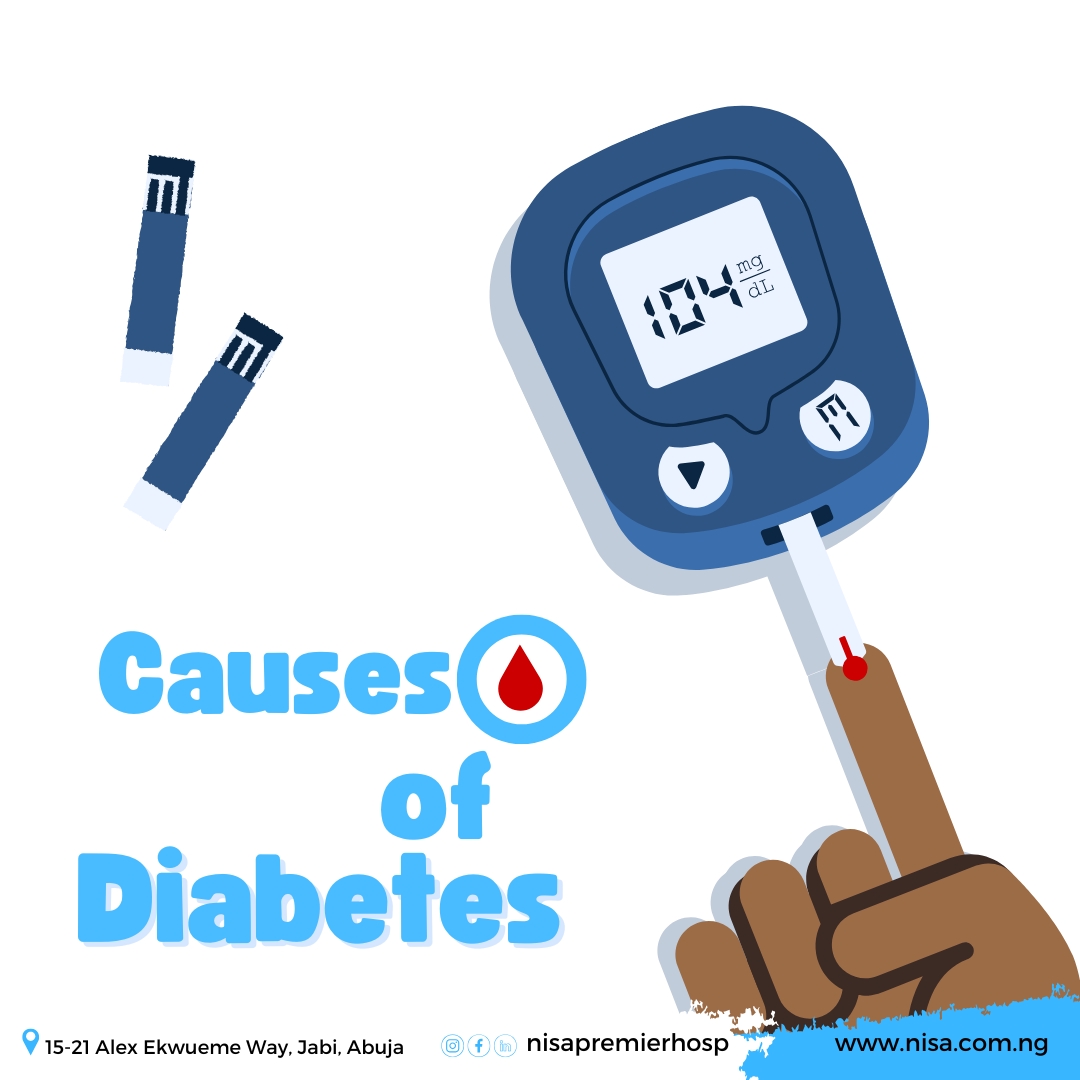Diabetes: A Look at Diabetes and Its Impact
Diabetes is a chronic health condition affecting millions of people globally across all demographics. It occurs when the body cannot produce or use insulin effectively, leading to elevated blood glucose levels. This condition can lead to various health complications, impacting nearly every organ in the body if left untreated, it can also affect heart health, kidneys, vision, and even mental health. Understanding diabetes, its causes, and symptoms can empower you to take charge of your health and manage or prevent the onset of this condition.
There are three primary types of diabetes: Type 1, Type 2, and gestational diabetes. Each type has its own unique characteristics, causes, and approaches to management. By understanding these differences, we can better grasp how diabetes affects individuals and the best practices for prevention and care.
Types of Diabetes and Their Causes
Type 1 Diabetes: Often diagnosed in childhood or adolescence, Type 1 diabetes is an autoimmune condition in which the body attacks insulin-producing cells in the pancreas. As a result, those with Type 1 diabetes require lifelong insulin therapy such as insulin injections or an insulin pump to manage blood sugar levels.
Type 2 Diabetes: It is the most common form, affecting 90-95% of those with diabetes. This type usually develops in adults but is increasingly seen in younger individuals due to lifestyle factors such as poor diet and lack of exercise. With Type 2 diabetes, the body becomes resistant to insulin, resulting in elevated blood sugar levels. Unlike Type 1, Type 2 diabetes can often be prevented and managed with lifestyle changes.
Gestational Diabetes: This type occurs during pregnancy and usually resolves after delivery. However, women who experience gestational diabetes are at higher risk of developing Type 2 diabetes later in life. Gestational diabetes is often managed with dietary changes, physical activity, and sometimes insulin therapy.
Understanding the Causes
The causes of diabetes vary with each type. Genetics plays a role, but lifestyle factors are often more influential, especially in Type 2 diabetes. A diet high in sugar, processed foods, lack of exercise, and obesity are significant risk factors.
Recognizing Early Symptoms of Diabetes
Early detection of diabetes can prevent severe complications and improve management. Recognizing common symptoms and seeking medical guidance can help with early diagnosis and treatment. Some common symptoms include
- Frequent urination
- Excessive thirst and hunger
- Unexplained weight loss
- Fatigue
- Blurred vision
- Slow-healing wounds and recurring infections
Recognizing these symptoms and consulting a healthcare professional can lead to early intervention.
Complications of Untreated Diabetes
If left untreated, diabetes can lead to severe health problems. Chronic high blood sugar can damage blood vessels and nerves, increasing the risk of cardiovascular disease, kidney disease, and nerve issues, including diabetic neuropathy. Vision problems, foot issues, and increased susceptibility to infections are also common complications.
Preventing Diabetes: Tips for a Healthier Life
Prevention plays a crucial role, especially for Type 2 diabetes, where lifestyle factors significantly impact disease development. Implementing healthy habits can prevent or delay the onset of diabetes.
- Healthy Eating Habits: Eating a balanced diet rich in fiber, low in refined sugars, and free from processed foods can lower diabetes risk. Fiber slows glucose absorption, helping to maintain stable blood sugar levels. Incorporating whole grains, leafy greens, and healthy fats can further reduce the risk of diabetes.
Limiting sugary drinks, processed foods, and refined carbohydrates is essential for blood glucose management. Instead, opt for foods with a low glycemic index to help prevent insulin resistance and manage weight effectively.
- Regular Physical Activity: Staying physically active is one of the most effective ways to prevent diabetes. Exercise helps with weight management, increases insulin sensitivity, and lowers blood glucose levels. Activities such as walking, jogging, and strength training can be highly beneficial for diabetes prevention.
- Weight Management: Excess weight is a major risk factor for Type 2 diabetes. Maintaining a healthy weight can reduce the likelihood of developing diabetes. Combining a balanced diet with regular exercise is the best approach to achieve and maintain a healthy weight.
The Importance of Regular Checkups
Even if symptoms are mild or seemingly unrelated, regular health check-ups can catch diabetes early improving the chances of successful management. Screenings such as fasting glucose tests and A1C can detect prediabetes, enabling early intervention. Annual check-ups also help monitor for complications related to diabetes, such as high blood pressure, kidney function, and cholesterol levels.
Conclusion: Taking Charge of Diabetes Prevention and Management
Diabetes is a complex condition, but with the right knowledge, habits, and support, individuals can manage their health and lead vibrant lives. From understanding the different types of diabetes and recognizing symptoms to adopting a balanced diet, regular exercise, and effective stress management, individuals can take meaningful steps toward diabetes prevention and control. Embracing a proactive approach to kidney health, staying informed about best practices, and seeking regular checkups are all integral to preventing complications and enjoying optimal well-being.





